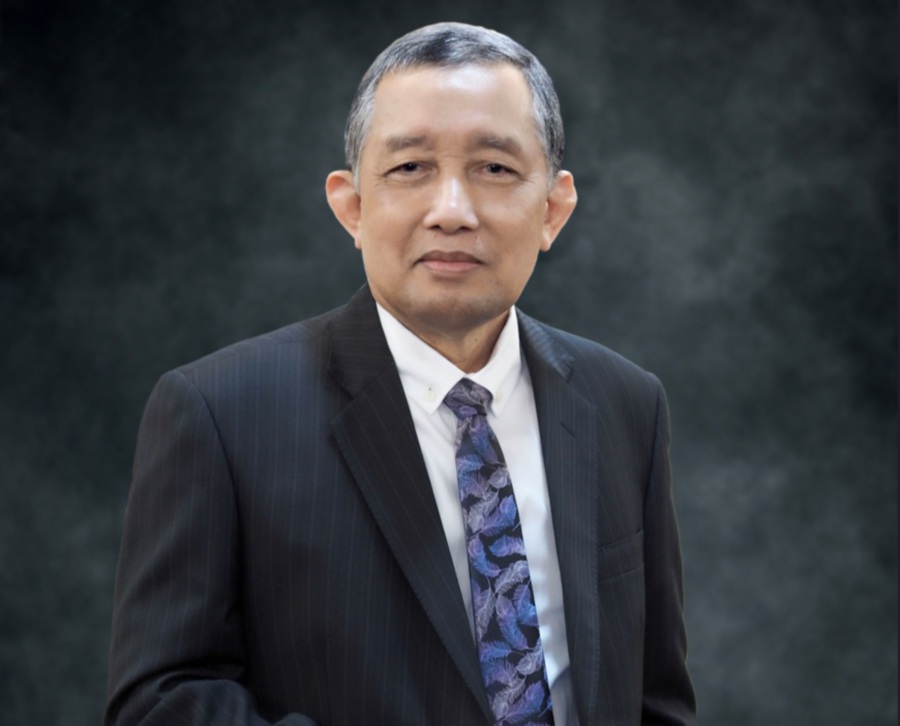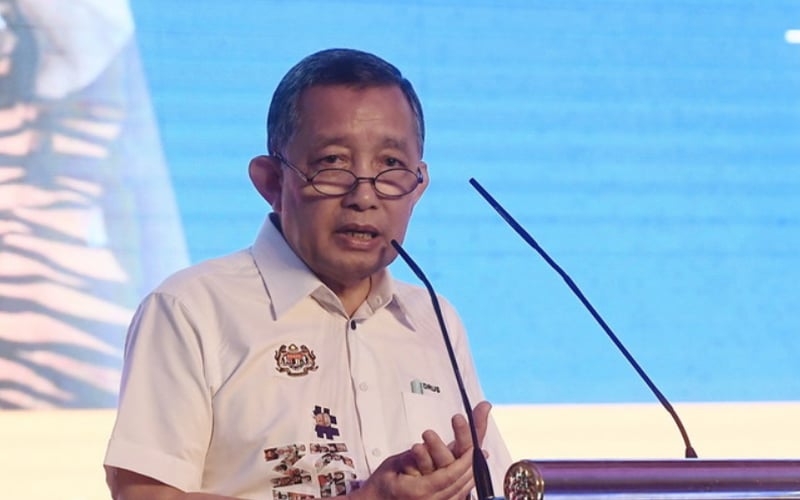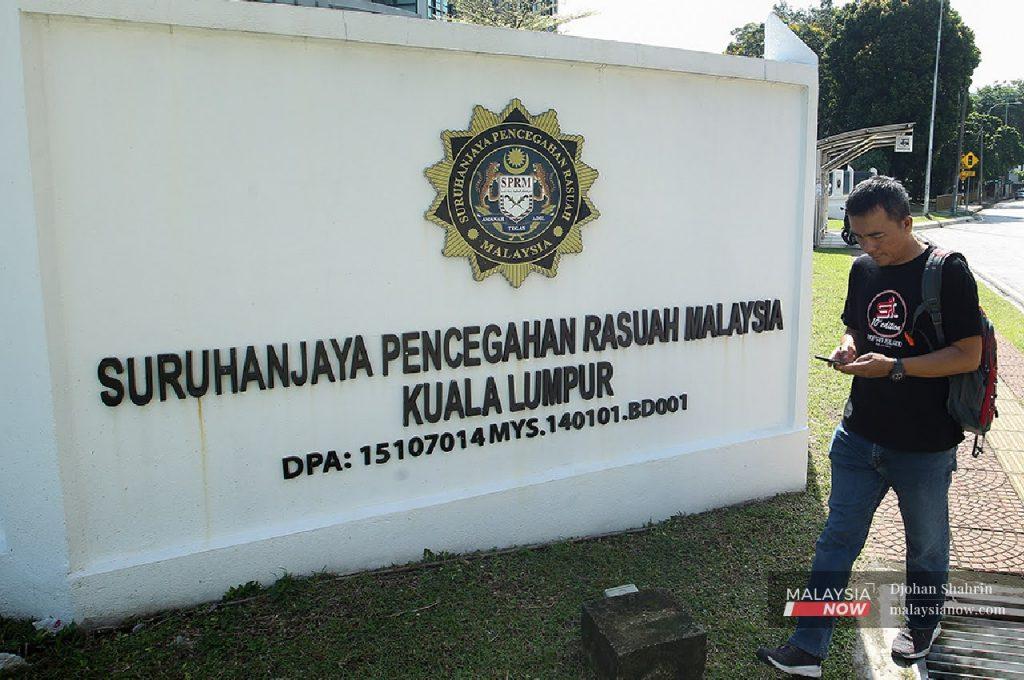When Idrus Harun, the Public Prosecutor/Attorney General, just before he ended his term in office, DISCONTINUED Zahid Hamidi's, the UMNO President and Anwar's Deputy Prime Minister, criminal case - that led to a Discharge Not Amounting to an Aquittal(DNAA), there was public anger and a lot of questions. Why was the case dis-continued after the prosecution had already managed to prove all the elements of the crimes in the 47 charges, which the court then call Zahid Hamidi to enter his Defence. When this happens, Zahid will be CONVICTED unless during the Defence stage, he is able to raise a Reasonable Doubt. A very ODD discontinuance of a criminal trial? Was there 'political pressure' by the PM or some in government?
BUT, in yesterday's(15/9/2023) media report, the Prime Minister's comments are of concern. - the charges against Ahmad Zahid Hamidi were "questionable" and not carried out professionally. "Was it 47? Every cheque is a charge. So the charge is questionable. Every cheque issued is a charge by itself, which does not necessarily seem to be professionally done," See .- Malaysia Now, 15/9/2023
Now, when Idrus Harun gets appointed as Chairman of Amanah Raya Berhad, which a wholly owned company, which reasonably comes under the Finance Ministry, where Anwar Ibrahim is the Finance Minister of Malaysia.
So, question arises - Was the appointment a 'pay-back' for the act of discontinuing the criminal case against Zahid Hamidi? Maybe YES, maybe NO. BUT, would not public perception be that it was...so, that is the major issue.
'The appointment creates a perception that he is being rewarded for his loyalty to the government leadership of the day,” he[Lawyer Shukor Ahmad] said.(FMT)
Lawyers and the Malaysian Bar has long called for the non-appointment of ex-judges to GLCs, government bodies or even companies after they retire. Why? This affect the perception of independence of Judges when in office > was this required independence compromised because of a 'promise' of a future appointment? I and the Malaysian Bar have also called for a 'cooling off period' of maybe 3 years or more. Best, if these ex-judges never take on such positions that also comes with payment/benefits. [After all, judges still get their pensions).
In 2003, Tun Mohamed Dzaiddin, the former Chief Justice, being the head of the Malaysian Judiciary, retired from office, and soon after joined a law firm as a consultant.
Bar Council then said that “...when a judge retires and soon after joins a law firm, an area of serious concern that immediately presents itself is the perception that an offer to do so might have been made to the judge before his retirement, and discussions or negotiations on the same might have started or taken place while the judge was still serving on the bench; particularly if there is a short time lapse between the judge’s retirement and his joining the firm."
“This in turn gives rise to the question whether the independence of the judge could have in any way been influenced or compromised by the making of such an offer or the holding of such a discussion...”
In the said statement, the Bar Council went on to state that “in protection of that principle [Independence of the Judiciary], and after examining the experience of other jurisdictions, the Bar Council is of the view that there ought to be a lapse of a suitable period of time (which is often called a “cooling off” period) after a judge’s retirement before he may be permitted to practise law at the Bar..”.
When former Inspector General of Police, after his retirement, got appointed as Deputy Chairman of Genting. He retired at the end of 2018.
According to Genting's Annual Report 2017, Mohammed Hanif, 79, was appointed as deputy chairman on Feb 23, 1994. He was the IGP for 20 years before retiring in January 1994, having joined as an officer in 1959.
Thus, the issue of senior Ministry or government officers - Their being appointed to such positions raises doubts as to their independence and professionalism when they were in office which were task with law enforcement. Was these appointments a kind of 'pay back' for preferential treatment received by State or private enterprise? After all, they receive hefty pensions until death, so should they also be forbidden from taking up such positions, or imposed a 'cooling off' period?
Now, we have a Attorney General (also the Public Prosecutor) - He may have done no wrong, but the concern is PUBLIC PERCEPTION.
Zahid Hamidi, the president of UMNO and the BN Chair, was very important to Anwar Ibrahim and Pakatan Harapan after GE15, when PH failed to win enough seats, and Perikatan Nasional(BERSATU, PAS,..) despite the King's suggestion openly stated that they will not join PH to form a coalition government. Having limited choices, PH choose to form the government with BN(PH's main opponent for many GEs until GE15). As other MPs have since joined the coalition government, maybe there is no more the need for PH dependence on Zahid and BN.
Should Idrus Harun not resign as Chairman of Amanah Raya?
Should we have a Royal Commission of Inquiry for post-retirement conducts of Attorney General and senior government lawyers, Ministers and heads of civil service - as it can affect the public perception of the use or abuse of the office they previously held?
Another issue - is the security of tenure and pension rights. Idrus Harun was appointed AG/Public Prosecutor on a contract basis, hence the likelihood that he will not be getting pension rights.
Should there be security of tenure PLUS pension rights for Attorney Generals and/or Public Prosecutors?
Was PM's comments about Zahid Hamidi's case inappropriate? A personal opinion OK - but as PM?
AG Apandi Ali - Director of LUTH? Was this 'gratification' for how he dealt with criminal allegations against PM? Explain please..
AG Apandi Ali, being former senior judge, should really not be be appearing in court as lawyer for accussed or prosecution?
Serving Judges Must Not Be Considered Or Appointed As Attorney General, To Also Preserve The Independence Of The Judiciary(MADPET)
Mahathir and the judges - The Judiciary during the Mahathir era
Idrus insisted on seeking DNAA for Zahid before retiring, says PM
Prime Minister Anwar Ibrahim says ex-AG Idrus Harun did not want to ‘leave this responsibility’ to his successor.
Faisal Asyraf and Faiz Zainudin - 08 Sep 2023, 3:48pm Prime Minister Anwar Ibrahim said that if it were up to him, he would have preferred a later court date, after tomorrow’s Pulai and Simpang Jeram by-elections.
Prime Minister Anwar Ibrahim said that if it were up to him, he would have preferred a later court date, after tomorrow’s Pulai and Simpang Jeram by-elections.
KUALA LUMPUR: Prime Minister Anwar Ibrahim said former attorney-general (AG) Idrus Harun insisted on seeking a conditional discharge for deputy prime minister Ahmad Zahid Hamidi before his final day in office.
“The AG (Idrus) said the earliest date the court could set was on Sept 4, and Sept 5 was his last day (in office).
Stay up-to-date by following FMT's Telegram channel
“He (said) he didn’t want to leave this responsibility to his successor,” Anwar told reporters after Friday prayers.
Anwar said if it were up to him, he would have preferred a later court date, after tomorrow’s Pulai and Simpang Jeram by-elections.
Anwar once again denied having a hand in the court’s decision to grant Zahid a discharge not amounting to an acquittal (DNAA) in his Yayasan Akalbudi case.
"I myself sought an explanation from the AG. I don’t blame the people for seeking further explanation,” he said, adding that the presiding judge was satisfied with the 11 points put forward by the prosecution when it requested for the DNAA.
On calls for the separation of the public prosecutor’s office from the Attorney-General’s Chambers (AGC), Anwar said efforts are ongoing.
He said a proposal paper had been presented to the Cabinet a few months ago for approval on separating the two offices.
“We have even referred it to a parliamentary committee, and it (the separation of the two offices) would cost a lot of money. (But) if it has to be done, then it will be done.
“Please don’t suggest that it has not been decided. This government has made a decision but we cannot bulldoze it in a few weeks and we need a two-third’s majority to effect this reform,” he said.
On Monday, Bersih urged the prime minister to unveil a plan and schedule “this week” for the separation of the public prosecutor’s role from the AGC.
The electoral reform group said thorough recommendations had been drawn up previously on how the separation of powers could be done. “The only action left is to implement it,” it said.
It added that, until the separation is done, the AGC must refrain from withdrawing charges in high-profile cases. - FMT, 8/9/2023
Former AG Idrus Harun appointed as Amanah Raya chairman

KUALA LUMPUR: Former attorney general Tan Sri ldrus Harun has been appointed as the new chairman of Amanah Raya Bhd (AmanahRaya) effective from Oct 10.
Prior to his appointment, Idrus served as a deputy public prosecutor under several departments such as the Royal Customs & Excise Department and Prosecution Division of Attorney General's Chambers Malaysia.
He had also served as the Terengganu state legal advisor, senior federal counsel of the Election Commission of Malaysia and Malaysian Anti-Corruption Commission, as well as a parliamentary draftsman.
Idrus was previously appointed as the solicitor general in April 2006 and later as the court of appeal judge in September 2014.
He was subsequently appointed as the federal court judge in November 2018 prior to his appointment as the AG of Malaysia from March 2020 up to his retirement in September 2023.
With his wealth of experience and judicial excellence, AmanahRaya is confident that Idrus will continue to propel the company to greater heights. - NST, 10/10/2023
Don’t appoint retiring judges, civil servants to GLCs immediately, says lawyer
Shukor Ahmad says this is to protect the independence of the office they once held, for good governance and to preserve the rule of law.
FMT Reporters - 14 Oct 2023, 9:00am
 Former attorney-general Idrus Harun left his post on Sept 5 and was appointed chairman of Amanah Raya Berhad on Oct 10. (Bernama pic)
Former attorney-general Idrus Harun left his post on Sept 5 and was appointed chairman of Amanah Raya Berhad on Oct 10. (Bernama pic)
PETALING JAYA: A lawyer has suggested a “cooling-off” period be put in place before retired judges and top-ranked civil servants are allowed to take up appointments in government-linked companies.
Shukor Ahmad said the measure is necessary to protect the independence of the office they once held, promote good governance and preserve the rule of law.
“There must be an interval of at least three years before ex-judges and senior civil servants take up offers in government-linked entities,” he told FMT.
Shukor said this following the appointment of former Attorney-General (AG) Idrus Harun as Amanah Raya chairman, a government-linked company owned by the Minister of Finance Incorporated (MoF Inc), effective Oct 10.
Idrus, who was appointed AG in March 2020 on a contract basis, left the office on Sept 5.
“The appointment creates a perception that he is being rewarded for his loyalty to the government leadership of the day,” he said.
Shukor said that about 20 years ago, there was a brouhaha in the legal fraternity after a chief justice was appointed consultant in a prominent legal firm soon after his retirement.
“The question posed at the time was whether negotiations were conducted when the judge was still in office,” he said.
Similarly, in Idrus’s case, the propriety of his appointment has come under scrutiny since he was also the public prosecutor.
Shukor said the public did not mind if a retired judge or senior legal officer went into private practice upon retiring.
He said in 2013, the Federal Court ruled that retired judge Gopal Sri Ram could practice law as Article 5 of the Federal Constitution guarantees the right of a citizen to earn a living.
Meanwhile, lawyer Rafique Rashid Ali said the optics did not look good on Idrus and the government as the former had been appointed too soon after his contract expired.
“The public cannot be faulted for having a negative perception of the appointment as Idrus went on silent mode when Deputy Prime Minister Ahmad Zahid Hamidi was given a discharge not amounting to an acquittal (DNAA) just one day before he left office,” he said.
Zahid was facing 47 charges, 12 of which were for criminal breach of trust, eight for corruption and the remainder for money laundering.
On Sept 4, Justice Collin Lawrence Sequerah granted the prosecution’s request for a DNAA in Zahid’s favour after a prima facie case had been proven and while the defence case was ongoing.
Rafique said Idrus was drawing two pensions as a retired solicitor-general and a retired Federal Court judge.
“He should have honourably declined the appointment as he did not show any accountability in Zahid’s case. His livelihood upon retirement is also not at stake,” he said. - FMT
Lawyer moots ‘cooling-off period’ before ex-govt officials return to industry they once headed
This is already the practice in many countries as part of good governance and anti-corruption measures.
A senior lawyer has proposed that former civil servants who once held top posts undergo a cooling-off period before returning to the private sector to work in industries which used to be under their jurisdiction.
“This is to avoid any perception that someone is unfairly or unjustly leveraging contacts made or information gained during his time as a civil servant for personal gain,” Andrew Khoo, who is also the co-chair of the Malaysian Bar’s Constitutional Law Committee, told MalaysiaNow.
He was responding to a report that a former top anti-corruption officer is now part of the defence team for a politician charged with money laundering.
Earlier this week, Dzulkifli Ahmad, who served as chief commissioner for the Malaysian Anti-Corruption Commission from 2016 to 2018, was named as part of the defence counsel for former Felda chairman Shahrir Samad in the latter’s money laundering case.
Shahrir, the former Johor Bahru MP, faces a charge of money laundering for failing to declare his actual income in 2013 when he received RM1 million from former prime minister Najib Razak, money which MACC said was linked to troubled state firm 1MDB.
Dzulkifli was also in charge of a unit placed under the Attorney-General’s Chambers (AGC) when it was involved in the 2015 1MDB investigation, which was short-lived.
He also headed the AGC’s unit to fight money laundering, the same crime with which Shahrir is charged.
Dzulkifli’s role in Shahrir’s case has raised questions of a potential conflict of interest.
“He puts himself in a clear conflict of interest as the defence lawyer to Shahrir, as he would have confidential and privileged information which came to him during the time he was in the AGC, and subsequently as chief commissioner of MACC,” a lawyer had told MalaysiaNow on condition of anonymity.
Khoo agreed there was potential for conflict of interest in former senior officials from jurisdictional bodies joining the private sector, although this is not illegal.
He said in Dzulkifli’s case, it is the right of a solicitor to choose whom he represents.
But he added: “There are professional rules about conflict of interest and the requirement for an advocate and solicitor to not place himself in a position of conflict or potential embarrassment.
“This could arise if an advocate and solicitor is privy to information about his client that was obtained while he was in a different capacity.”
He said one solution is to institute rules to ensure that “a sufficient period of time elapses between leaving government service and working in a company or enterprise in the similar sector”.
“This is done in many countries as part of good governance and anti-corruption measures and practices,” he added.
Khoo said concerns of conflict of interest could arise in the case of retired judges returning to practise law, or former civil servants becoming directors or consultants in companies involved in the same industry where they had held positions in the government.




No comments:
Post a Comment